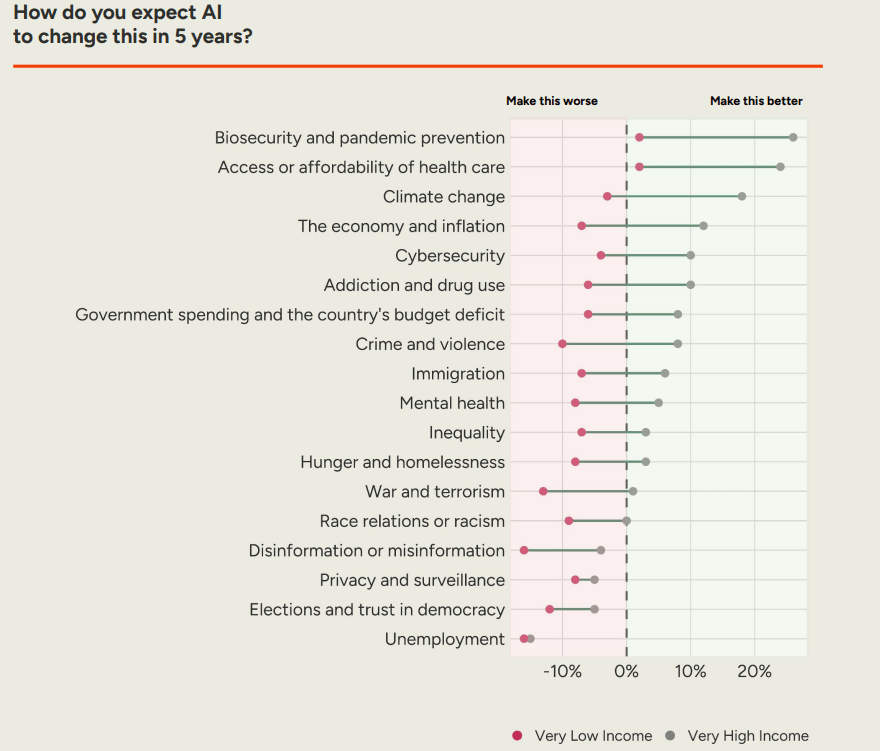One of the largest sentiment analyses on AI has just been published. Seismic surveyed 10,000 people across the U.S., U.K., France, Germany, and Poland to understand how the public perceives the risks and opportunities of AI.
A striking finding is that the area where people expect the greatest positive impact from AI is biosecurity and pandemic prevention(!) (see figure 1 below). I understand that AI applications in biosecurity do exist and are promising, however the idea that the general public believe the net impact of AI on biosecurity is expected to be strongly positive over the next 5 years seems pretty surprising. This is even more surprising as high-income survey respondents expect a more positive impact here, which is counterintuitive if you believe that more educated higher earners might have been more exposed to AI-biorisk arguments.
This comes only weeks after Science published an article highlighting the dangerous potential of generative AI tools to create viruses capable of evading current screening processes. This seems to show that bio-risks are being taken increasingly seriously by interdisciplinary teams of experts well beyond the 'AI-safety' movement, but has made negigible cut-through with the public.

It’s widely recognised that bio-risk from AI has not captured public attention in the same way as concerns about misinformation, bias, or automation. Yet the size of the gulf between public optimism that AI will strengthen biosecurity and expert warnings that it could enable engineered pandemics is stark and worth reflecting on.

It seems like this might simply be explained by "biosecurity and pandemic prevention" containing two very different things: 'novel biosecurity risks' (of the kind EAs are concerned about) and 'helping with the next covid-19' (likely more salient to the general public and potentially involving broader healthcare improvements, which AI was also predicted to improve to a similar extent).
Perhaps relatedly, biosecurity and pandemic prevention was rated as the least a problem today (below everything other than AI itself).